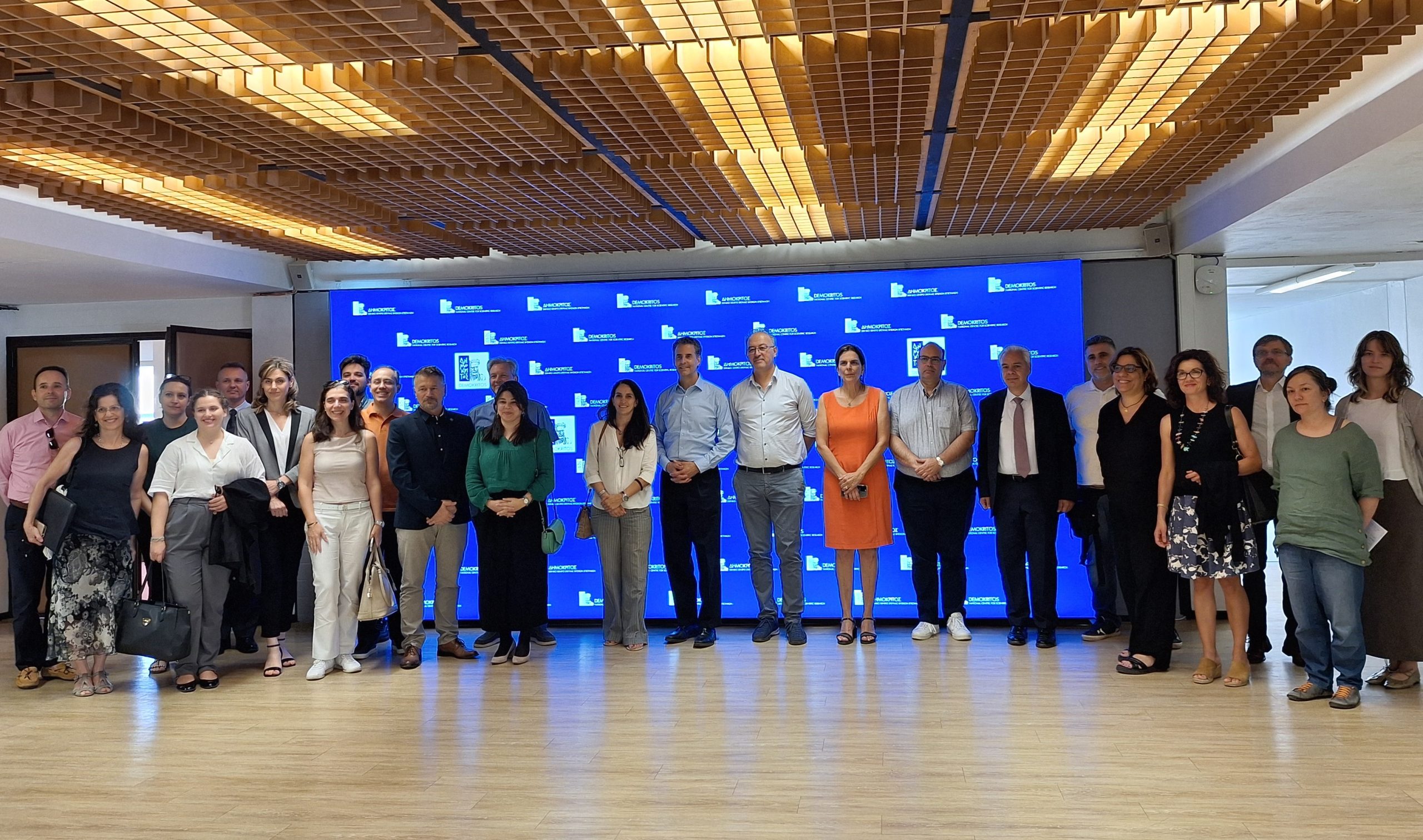
The Center of Excellence in Sustainability and the Program of International Relations and European Affairs, School of Liberal Arts and Sciences, The American College of Greece (ACG), in collaboration with the National Centre for Scientific Research (NCSR) Demokritos, co-organized a 3-day course titled “Climate Change and Security.” This event took place from June 18-20, 2024, at the ACG premises, under the auspices of the European Security and Defense College (ESDC). The masterclass was addressed to senior-level decision-makers and experts—both civilian and military—from EU Member States, relevant EU institutions, and agencies. The aim was to familiarize the 19 participants with the concept of climate change and the associated threats to security for human societies, ecosystems, and the economy, addressing both current and future challenges and assessing EU policies in this field.
The course featured presentations from distinguished professors and professionals covering a variety of topics. The first day began with welcoming remarks by Dr. Panos Vlachopoulos, Vice President of Academic Affairs at Deree-The American College of Greece, who invoked the Aristotelian virtues essential for well-being and a secure society. Dr. Konstantinos Eleftheriadis, Director of Research at NCSR Demokritos, set the framework of the ‘Global problem of climate change, cause, effects and threats to civil security.’ ‘Climate Threats to the Economy‘ was discussed by Dr. Andreas Papandreou, Professor at the Department of Economics at the National and Kapodistrian University of Athens and Co-Chair of the Sustainable Development Solutions Network (SDSN), while Dr. George Kokosalakis, Associate Professor at Deree and Executive Director of the ACG Center of Excellence in Shipping, Logistics, & Energy delved into ‘Climate Threats to Energy Security.’ Mr. I. Cebek, Training Manager at the European Security and Defense College, stressed the ‘Interconnection between climate change and EU security,’ describing the course’s processes. Dr. Dimitrios Kantemnidis, Managing Director at Theophrastus Research Institute (TheoRI), elaborated on the ‘Environmental issues and the EU security: perspectives, approaches, and challenges.‘
Session I on the second day was dedicated to the EU LIFE-IP AdaptInGR Project: “Boosting the implementation of adaptation policy across Greece.” This session explored how the project contributes to enhancing civil security through climate adaptation processes. The project presentation was delivered by Ms. Konstantina Zoumpoulaki, LIFE-IP AdaptInGR Project Manager and external collaborator of the Ministry of Environment and Energy, followed by Dr. Spyridoula Ntemiri, LIFE-IP AdaptInGR Project Manager for the Green Fund, who presented the ‘Methodology for Assessment of Vulnerability.’ Dr. Gianna Kitsara, Research Fellow at the Institute for Environmental Research and Sustainable Development, National Observatory of Athens (NOA), discussed the ‘Use of tool developed within the framework of LIFE IP AdaptInGR.’ A hands-on workshop engaged all participants on the topic of ‘Vulnerability Assessment and Use of Climate Indicators for Designing Adaptation Options using methodologies and tools developed within the LIFE-IP AdaptInGr.‘ The facilitators of the workshop were Dr. Stella Apostolaki, Assistant Professor of the Department of Science of Mathematics & Executive Director of the ACG Center of Excellence in Sustainability, Dr. Gianna Kitsara, Dr. Ioannis Lemesios, Research Fellow, Institute for Environmental Research and Sustainable Development, NOA, Dr. Spyridoula Ntemiri, and Ms. Konstantina Zoumpoulaki.
Session II took place at the NCSR Demokritos premises, beginning with presentations on related projects within NCSR Demokritos on ‘Adaptation of Agriculture practices from extreme weather events – FROSTDEFEND‘ by Dr. Maria Gini, on ‘Climate security research for holistic fire management – the TREEADS project‘ by Dr. Dimitris Kyriazanos, and on ‘Climate Change and Cyanobacterial Toxins: Amplifying Public Health Risks in a Warming World‘ by Dr. Anastasia Hiskia. The Research Infrastructures for Atmospheric and Climate Research at the NCSR Demokritos was presented by Dr. Konstantinos Eleftheriadis. The presentation was followed by a tour of the Tandem particle accelerator lab in the Hydrogen facility and the Atmospheric Measurement station of NCSR Demokritos, operated by the Environmental Radioactivity & Aerosol Technology for Atmospheric & Climate Impact Lab (ENRACT). U.S. Congressman John Sarbanes joined the field visit, expressing his interest in the technological advancements at the NCSR and potential collaborations between ACG and NCSR Demokritos.
The third day opened with a session on Monitoring, Risk Assessment, and Contingency Planning, with presentations on ‘CLIMPACT: The Greek Initiative for Studying Climate Change and its Impacts‘ by Dr. Nikos Michalopoulos, Research Director and Scientific Coordinator of CLIMPACT, NOA and ‘Water Security and Climate Change Risk Assessment and Contingency Planning‘ by Dr. Stella Apostolaki.
Session II of Day 3 focused on Planning for Resilience, featuring two presentations on ‘Resilience in the Agricultural Sector: Food Security‘ by Dr. Dimitris Voloudakis, part-time Instructor at the ACG Department of Science and Mathematics and Scientific Collaborator at the Academy of Athens, and on ‘Building Resilience in the Energy Sector – Key ESG Considerations in the Energy Industry‘ by Ms. Iliana Papacharalampous, Attorney-at-Law (Energy, ESG), Vice President of the Trainee and Young Lawyers’ Association of Athens (E.A.N.D.A.). The day concluded with a panel discussion on the Social and Geopolitical Impacts of Climate Change, addressing climate migration issues, social impacts, and geopolitical changes due to climate change and threats to security.
In the third and final session, the Social and Geopolitical Impacts of Climate Change were discussed in a panel discussion with Dr. Chrysa Zachou, Associate Professor and ACG Department Head of Sociology who focused on ‘Climate migration issues,’ Dr. Gregory Katsas, Associate Professor and ACG Student Academic Support Services who provided an ‘Insight on the social impacts of climate change‘ and Dr. Nikolaos Lampas, Assistant Professor and Program Coordinator of the ACG International Relations and European Affairs who emphasized the ‘Geopolitical changes due to climate change and threats to security.’
The course culminated with a Certification Ceremony for the attendees.
